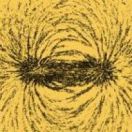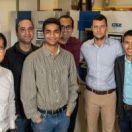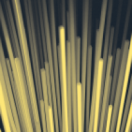SystemX Alliance News
Wed, 02/26/2020
Their efforts may someday enable quantum-based technologies, such as quantum computers, quantum networks or engines that run on light.
Thu, 02/20/2020
The next era of computing will depend on controlling light the way we now control electricity, and Stanford scientists have developed a trick that could do just that.
Wed, 02/19/2020
Using artificial intelligence, a Stanford-led research team has slashed battery testing times – a key barrier to longer-lasting, faster-charging batteries for electric vehicles – by nearly fifteenfold.
Thu, 02/13/2020
A professor of astronautics foresees a new space age in which distributed space systems made of small satellites work in tandem to replace or augment their monolithic ancestors.
Thu, 01/30/2020
By teaching machines to understand our true desires, one scientist hopes to avoid the potentially disastrous consequences of having them do what we command.
Fri, 01/24/2020
Photonics engineers are working toward a day when fast, energy-efficient computers do their mathematics using photons — packets of light — instead of electrons.
Thu, 01/16/2020
A team is designing experiments that will use new, jello-like materials to develop out-of-this world products aboard the International Space Station.
Wed, 01/15/2020
The PigeonBot could help improve wing design, and may advance understanding of avian evolution.
Wed, 01/15/2020
The experimental device promises to provide a safe and comfortable power source for technologies that must bend and flex with our bodies.
Tue, 01/14/2020
Stanford researchers are helping to develop swarms of cheap sat-bots that would work together to get more done than larger, costlier satellites working alone.












